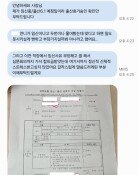Moon needs to tighten ROK-US alliance amid heightened tensions
Moon needs to tighten ROK-US alliance amid heightened tensions
Posted September. 23, 2017 07:22,
Updated September. 23, 2017 07:41
North Korean leader Kim Jong Un said in a statement on Friday, “We will consider with seriousness exercising of a corresponding, highest level of hardline countermeasure in history against the United States as U.S. President Donald Trump made the most ferocious declaration of a war in history,” adding that Trump would face “results beyond his expectation.” This is a direct message from Kim to Trump after Trump warned North Korea in his UN General Assembly speech on Wednesday that the United States would “totally destroy” the country and announced a secondary boycott banning entities and individuals in the third countries from doing business with North Korea. It was the first time that the North Korean leader issued a statement to the world.
The belligerent rhetorical battle between the two leaders of the United States and North Korea has been escalating to the peak. Since the North’s sixth nuclear test, the Trump administration has made reference to “military action that does not put Seoul in serious danger” and announced on Friday new sanctions prohibiting vessels and airplanes that have been to North Korea from entering the United States as well as Iran-style secondary boycott sanctions specifically targeting China and Russia. In response, Kim Jong Un said, “I will surely and definitely tame the mentally deranged U.S. dotard with fire,” and the North Korean foreign minister suggested that Pyongyang could test a powerful hydrogen bomb test in the Pacific.
It is hard to rule out the possibility that such a confrontation between the United States and North Korea would lead to a military conflict. If North Korea makes a major provocation in the U.S. waters, Washington would have no choice but to respond with military actions such as precision bombing. If this makes the North carry out another provocation against Seoul, a war on the Korean Peninsula would be inevitable. Of course, as the conflicts reach the extreme, there is a possibility that if one of them slams on the brakes, they may sharply shift to a dialogue phase. In any scenario, the South Korean government is in a desperately dire situation and needs to overcome with an extraordinary resolve.
On the sidelines of the UN meeting, South Korea’s President Moon Jae-in attended a bilateral summit meeting with U.S. President Trump and a Korea-U.S.-Japan trilateral summit luncheon meeting on the same day to reaffirm cooperation among three countries to put maximum pressure and sanctions on North Korea. Presidents Moon and Trump agreed to strengthen their countries’ joint defense capabilities through Seoul’s acquisition and development of the most advanced weapons and to expand the deployment of U.S. strategic assets on the Korean Peninsula. But Moon’s calling for sanctions and peace simultaneously is considered odd by Japanese and U.S. counterparts. Japanese Prime Minister Shinzo Abe took issue with South Korea’s plan to provide humanitarian aid for North Korea, saying that it is not a good time to do so.
In a situation where the Korean Peninsula may be caught up in a war, Moon will not be able to agree unconditionally with Washington. Trump’s UN speech lashing out at North Korea is not that welcomed by the international community. Japan’s behavior, which seems to be closely related to the United States and encouraging to isolate South Korea, does not look good, either. However, given the cold reality of the international politics ruled by the logic of power, the choice must be clear in a crisis. First, the South Korean government must strengthen the ROK-US alliance and prevent North Korea from attempting another provocation. That way, we can speed up the dialogue phase that President Moon wants.
Headline News
- N. Korea launches cyberattacks on S. Korea's defense companies
- Major university hospital professors consider a day off each week
- Italy suffers from fiscal deficits from ‘Super Bonus’ scheme
- Inter Milan secures 20th Serie A title, surpassing AC Milan
- Ruling and opposition prioritize spending amid tax revenue shortfalls







